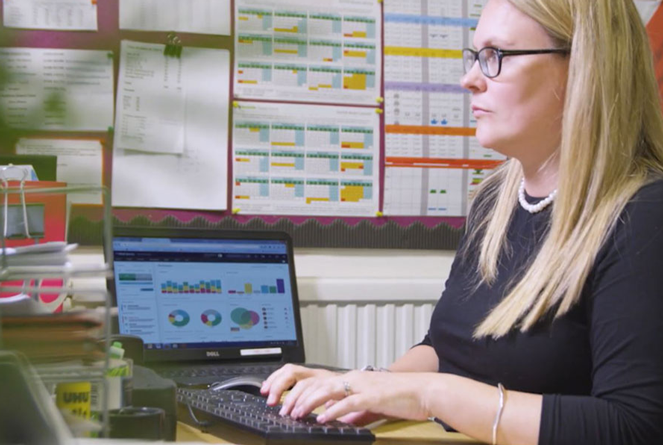Introduction
A School Business Manager (SBM) is responsible for the strategic planning and execution of financial, administrative, and operational functions within a school. This includes budget management, financial reporting, human resources coordination, facilities management, and overall support to ensure the school operates effectively and in alignment with its educational objectives. The role often involves collaboration with school leadership, staff, and external stakeholders to optimise resource allocation and contribute to the overall success and sustainability of the educational setting. To say that the role of a SBM is diverse and complex is an understatement.
Been there, done that and worn the SBM t-shirt
Zoe Cornwell, one of Juniper Education’s Finance Consultants, has walked in the shoes of a School Business Manager, so she knows the role well, including the highs, the lows, the challenges, and everything in between. However, due to the diverse nature of the role, Zoe is also aware that stepping into the role can occasionally trigger self-doubt, sometimes referred to as imposter syndrome.
Shereen Khem, one of Juniper’s Marketing Managers, caught up with Zoe to discuss the complex role of an SBM and how her current position as a Finance Consultant allows her to support SBMs who may be struggling.
The interview
Shereen: Zoe, having had experience as an SBM in a previous career, could you share some insights into the role?
Zoe: Being a School Business Manager can be lonely, as more often than not, you are the only person within the school who truly understands the job. It differs so much from the role of a Headteacher, which is much more education-focused. Headteachers are fantastic educators but can sometimes lack business management experience. A School Business Manager has a varied role, be it managing HR, financial processes, health and safety, or facilities; no day is ever the same.
Shereen: So, now that you are a Finance Support Consultant and actually help SBMs daily in your current role, what has stood out the most now that you are on the other side of the fence?
Zoe: Moving from a School Business Manager role to a consultant has truly opened my eyes. As I regularly visit different schools, I notice that many SBMs lack the confidence to ask questions about their role and the things they are struggling with. This observation stands out most since stepping away from the position. I highly recommend that SBMs struggling with confidence seek training opportunities or connect with other SBMs within their consortium for support. We all need help from time to time, and SBMs shouldn’t be afraid to reach out.
Shereen. That's an interesting insider perspective, and it's reassuring to know that SBMs facing challenges can seek support through training and collaboration. Do you have any additional advice for SBMs who may find it difficult to ask for help when needed?
I’d say to any SBM that they aren’t expected to be experts in every aspect of their role. It’s important to reach out and ask for help when they might need it, whether that’s through peer networking groups or even through third-party providers such as Juniper, which offers essential training for schools. It’s important not to struggle alone, and support is out there.
Shereen: I know the role of a School Business Manager is broad and, at times, challenging. For someone looking to take on an SBM role, what skills and qualities do you think they need?
Zoe: You’re right. The role of an SBM is very diverse and broad, and it’s good to have knowledge about many different aspects involved in school operations, such as HR, finance management, and facilities management. You get asked a lot of questions, and sometimes you just don’t know the answers; you’re not expected to know it all. I recall days when I would go in, and in the morning, I would be fixing a leaking tap and gritting the playground because the caretaker wasn’t it, and then in the afternoon, I would be budget planning. It’s what one would call a ‘jack of all trades’ kind of job, so having a rounded knowledge of business management and a can-do attitude would help.
Shereen: If we could wave a magic wand and were able to remove the struggles from the job, what would the ideal role of an SBM look like?
Zoe: In an ideal world, the role of a SBM would be less stressful and hectic. This would help retain SBMs in the education sector and allow them to better support headteachers in delivering quality education. With more time and less pressure, SBMs could focus on streamlining processes and making sure that every decision benefits the children in their schools. After all, the little people in the classrooms inspire us to do what we do.
Shereen: You’re so right; it’s the children who are the most important thing and the reason why many people go into the profession. You just touched on SBM retention. What else can be done to keep good people in the role?
Zoe: Addressing the struggle is essential to keep good people in the role. When the job feels monotonous or disconnected from its mission, it's easy for employees to lose motivation. We can mitigate this struggle by creating opportunities for growth, development, and relationship-building within schools. Failing to do so results in experienced staff leaving, which we've seen across the education sector. People are drawn to education not for the pay but because they feel they're making a difference. My own journey into education was motivated by a desire to give back and utilise my skills effectively. Additionally, maintaining a work-life balance is challenging in this role, requiring individuals to set firm boundaries. When the struggle becomes overwhelming and unmanageable, people are forced to leave.
Shereen: What advice would you give headteachers, deputy headteachers, and other school leaders who are trying to support SBMs?
Zoe: I'd advise prioritising proper training and understanding of the broader school environment for all SLTs. While SBMs need confidence in their roles, so do school leaders, especially when it comes to areas like finance, contracts, and HR. Building a partnership between SLTs and SBMs creates a smoother operation and alleviates the burden on business managers. Ultimately, investing in training for everyone is vital for the school's overall success.
Shereen: It all comes down to training, it seems, and you offer some very interesting perspectives, having now transitioned from that role. As you know, Juniper offers auditing services for schools and MATs. Do you think this service could help alleviate some of the pressures SBMs face in their role as well as training?
Zoe: Absolutely, Juniper's auditing service could be a game-changer for SBMs. Audits can be daunting, but they offer valuable insights into best practices. It's about continuous improvement—if we can do our job better, why wouldn't we want to know? Audits help us identify areas for enhancement, ensuring we're on the right track and avoiding potential issues down the line. It's all about embracing every opportunity to learn and grow. It's nerve-wracking at first, but the earlier you catch any issues, the better. Audits provide valuable feedback that helps us improve and mitigate risks.
At Juniper, we conduct audits daily, offering recommendations and feedback that make a significant difference. Plus, being prepared for inspections like Ofsted reduces stress and ensures we're constantly chipping away at any areas that need attention. It's all about proactive risk management and continuous improvement.
Shereen: It’s really good to know that there is support out there for SBMs. Earlier, you mentioned that an SBM can be a lonely role. With so many plates to juggle, have you ever run into problems as an SBM, the sole person responsible for so much?
Zoe: Running into problems as the sole SBM responsible for so much is inevitable. We're all human, prone to mistakes, sickness, and burnout. That's why I always joked about having a backup plan in case I got "run over by a bus." But in reality, schools shouldn't rely on just one person. The issue arises when others lack even basic knowledge, making it hard to keep things running smoothly in the SBM's absence. From HR processes to recruitment, the burden shouldn't fall on one person's shoulders. That's where Juniper's comprehensive services come in handy, providing a safety net similar to an army of SBMs.
Shereen: Juniper’s experts are like an army of SBMs – that’s a good reference. Can you explain this further and how Juniper can help SBMs relieve some of the pressures they face?
Zoe: Sure. Juniper's experts, including myself, offer invaluable support to alleviate the stress faced by SBMs. We understand the challenges—loneliness, invisibility, and the overwhelming weight of responsibility. That's why we prioritise building relationships and providing empathetic guidance. Whether it's HR, payroll, or finance, our team is here to listen, validate, and work alongside SBMs to find solutions. We recognise that sometimes the most important thing isn't just having all the answers but having someone who understands and supports you every step of the way.
Shereen: And there we have it—the highs, the lows, and everything in between that make up the role of an SBM. Thank you for your time today, Zoe, and for sharing your invaluable insights.
Are you a School Business Manager looking for support?
Juniper not only has the knowledge and experience to support SBMs, but our consultants have also walked in the shoes of an SBM, so they know first-hand the challenges SBMs face.
Get in touch with our team today, or should I say army of expert consultants, and together, Juniper can be the helping hand you need.


/Primary%20school%20.jpg?width=2000&name=Primary%20school%20.jpg)








.png?width=940&height=788&name=Lingfield%20College%20Case%20Study%20(5).png)
-1.png?width=1000&height=833&name=National%20Association%20of%20Head%20Teachers%20(3)-1.png)
-3.png?width=1080&height=1080&name=Untitled%20design%20(10)-3.png)





